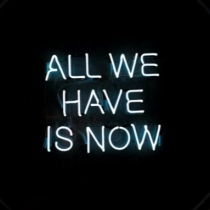Should You Give People Second Chances?

The idea of giving someone a second chance can be challenging. It can be even harder depending on who the person is to us and what they have done.
Everyone has their own opinion about second chances. But what if we have done to others what others have done to us? Would we not want a second chance then?
This article is not intended to convince people to give others a second chance. It is only meant to provide you with a few more tools to help you decide if you should give someone a second chance.
When faced with the dilemma of giving someone a second chance, I always try to remember some important points and ask myself a few questions:
What are second chances?
As simple as a second chance may sound, it might be a little more complicated than that.
First things first: is it a second chance at all, or has this person already gotten their second chance, or even more? If so, then that may change the whole picture.
If not, then the question is: what is this second chance this?
A second chance is not a do-over. It is not an undoing of everything that was already done. Believe it or not, it is an opportunity for both parties to work on themselves.
It is an opportunity for the receiving side to show that they have grown and learned from what has happened. To show that it was a lack of judgment or a mistake. That it will never happen again.
It's also a chance for us to practice forgiveness. We may not be able to forget, but we are more than capable of forgiving.
Forgiveness does not mean that we will simply move on without learning a lesson from this event. We will remember it. We will learn from it and understand that it can happen again, so that if it does, we can somewhat be better prepared.
It is an opportunity for all parties to experience some self-growth.
Do we know why it happened?
I've learned throughout my life that there are always two sides to a story and that not everything is as horrible as it appears.
When faced with a situation where I was hurt or disappointed, I have often wondered if I had anything to do with it or if it was my fault.
While I do not think it's necessarily the correct path to blame ourselves. I do believe it's crucial to understand what caused the situation.
Maybe there's a deeper reason that's not so simple.
Many people who have experienced infidelity in their relationships say that the relationships were not "alive" for a long time. This can lead to one or both parties doing things they would not otherwise do. Though, it's also not an excuse for betraying your partner.
But it is necessary to understand the causes and real reasons for the things that happened. This can allow you to learn from them and make sure they do not happen again.
Would we have acted any differently?
This is my favorite one.
We all have our moments when we are angry or upset with others. Maybe it's things they have said or things they have done. It doesn't matter. We get angry.
But let us take a step back.
Let us think for a moment and analyze the situation, and then ask the big question.
What caused the person to get angry and to say the things they said. To yell, to act in a way that did not suit them?
When I worked with clients, they would often come up to me and yell about things that had nothing to do with me but had to do with the company I worked for.
Of course, that did not stop them from complaining and yelling at me as if I had personally offended them.
I often let it get to me. I got angry, and while I did not yell back, I did go on the offensive more often than I should have.
But sometimes, I was able to take the better path.
Sometimes, I would let people yell at me while I patiently waited for them to let it all out and get to a state where they could listen.
At that point, I would ask again what was wrong. Surprisingly, I would get an actual answer, and we were then able to have a conversation about what was going on, which allowed me to understand what the issue was.
By doing this, I found out the underlying cause of their anger and yelling.
It was due to long-standing problems that the company hadn't addressed. They complained about these problems many times, but they were never dealt with.
Now, there were times when I was unable to have a reasonable conversation with people who would just start yelling at me. Sometimes I would also get angry, and only after would I find out what problem they were having.
Those were the moments when I was pretty disappointed in myself. I felt disappointed because I realized that their anger actually made some sense and that I would be angry too if I were in their shoes.
While I think there are better ways to handle these situations on both sides, I do understand that it's difficult to always do what we believe is right.
But the question I always try to ask myself now is: Would I have done the same?
This allows me to take a step back, take a breath, and figure out what's really going on.
This has very often helped me to better understand and help others and myself. By understanding the situation better, I was able to better understand how I felt about it. It made things easier for me. I could better understand how bad things actually were and if it required the internal debate of giving a second chance.
Would we want another chance?
Mistakes can happen. We all make them. And most of the time, we are all sorry for them. We know that under better circumstances, we would not have done what we did.
Another great tool I use for situations like this is to put myself in the other person's shoes. To try and understand their point of view and reasoning. Then comes the big question: Would I want another chance?
Even better: Would I deserve another chance?
This can be a tough one to do since many of us are often times much harder on ourselves than we should be. And putting ourselves in another person's shoes is also not an easy task.
But if we think about things in this way, we can make more mindful decisions. And many times, we may also realize that we have also done very similar things.
Yes, sometimes we do things to others that we don't want to be done to us. In these cases, wouldn't we want to receive a second chance? And if so, does it not make sense for us to give another chance?
Everyone is different, but be your best
Everyone has their own logic and reasoning about second chances.
While we may not always agree with other people's actions and thoughts, we can try and understand them as best as we can. Even if its just to allow ourselves to better understand why things were done the way they were.
All we can do is try our best, as often as we can.
















